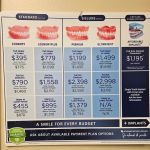How to Prevent Gum Disease with Diet and Exercise
When it comes to maintaining healthy gums and avoiding gum disease, many people immediately think of brushing and flossing as the primary solution. While these are undeniably important, what you eat and how active you are can significantly affect your oral health. I’ve learned over the years that incorporating a balanced diet and regular exercise into my daily routine has made a huge difference in keeping my gums strong and disease-free. In this article, I’m going to share the essential steps you can take to prevent gum disease through diet and exercise, two often overlooked but incredibly powerful tools in oral care.
1. The Role of Diet in Preventing Gum Disease
Your diet has a major influence on your oral health, and eating the right foods can provide your gums with the nutrients they need to stay strong. I’ve noticed that when I prioritize certain foods, my gums feel healthier, and I avoid issues like inflammation and bleeding. Here are some key dietary changes you can make to protect your gums:
1.1 Include More Vitamin C-Rich Foods
Vitamin C is a vital nutrient for gum health. It helps your body produce collagen, a protein that is essential for the structure and strength of your gums. When I started including more fruits and vegetables high in vitamin C, like oranges, strawberries, bell peppers, and broccoli, I noticed a reduction in gum sensitivity. Vitamin C also has anti-inflammatory properties that can help protect against gum disease.
1.2 Choose Whole Grains Over Refined Carbs
Refined carbohydrates, such as white bread and sugary snacks, can lead to the growth of harmful bacteria in your mouth. These bacteria feed on sugar and produce acids that damage gum tissue. I replaced refined carbs with whole grains, which are rich in fiber and help cleanse the mouth by stimulating saliva production, preventing plaque buildup and reducing the risk of gum disease.
1.3 Eat Calcium-Rich Foods
Calcium is essential for strong bones, and that includes the bone structure around your teeth. Dairy products, leafy greens, and fortified plant-based milks are great sources of calcium. I make sure to include low-fat dairy products like yogurt and cheese in my diet because they not only provide calcium but also help neutralize acids in the mouth.
2. The Impact of Exercise on Gum Health
While diet plays a big role in gum health, exercise also contributes in a significant way. Regular physical activity boosts your overall health, which includes improving your immune system and increasing blood flow to your gums. Here's how exercise benefits your gums:
2.1 Boosting Blood Circulation
Exercise increases blood flow throughout your body, including to your gums. This is important because proper circulation ensures that your gums receive the nutrients they need to stay healthy. I’ve noticed that by staying active, my gums feel less inflamed and more resilient to potential infections. Activities like brisk walking, running, and swimming are excellent ways to improve circulation and overall oral health.
2.2 Reducing Stress Levels
Chronic stress has been shown to contribute to gum disease by weakening your immune system. When you exercise, your body releases endorphins, which help reduce stress and promote a sense of well-being. I’ve found that after a good workout, I feel calmer and more relaxed, which in turn helps my body’s ability to fight off infections, including those that affect the gums.
2.3 Promoting Healthy Habits
Regular exercise also tends to encourage other healthy habits, including better oral hygiene practices. When I’m active, I feel more motivated to maintain good habits like brushing and flossing regularly. Additionally, people who exercise tend to have better overall health, which translates into fewer oral health problems. Whether it’s yoga, weight training, or cycling, staying active supports your gum health indirectly by promoting a healthy lifestyle.
3. Stay Hydrated for Healthy Gums
Water is essential for overall health, and this extends to your oral health as well. Drinking water throughout the day helps keep your mouth moist, which prevents dry mouth. When you have dry mouth, your body produces less saliva, which can lead to plaque buildup and a higher risk of gum disease. I always carry a water bottle with me to stay hydrated, and I make sure to sip water throughout the day, especially after meals to help wash away food particles and bacteria.
3.1 Why Saliva is Important
Saliva plays a key role in neutralizing acids produced by bacteria in the mouth, washing away food particles, and providing disease-fighting substances throughout your mouth. Staying hydrated ensures that your body can produce enough saliva to perform these vital functions, protecting your gums and teeth from potential damage.
4. Avoid Gum-Damaging Foods
While there are many foods that can help protect your gums, some can be harmful if consumed excessively. I’ve learned that cutting back on certain foods can have a big impact on gum health. Here are some of the worst offenders:
4.1 Sugary and Acidic Foods
Sugary foods and drinks, including soda, candy, and sweetened coffee, contribute to the growth of harmful bacteria in the mouth. These bacteria thrive on sugar and can cause plaque to form on the teeth and gums. I try to limit my intake of sugary snacks and opt for healthier alternatives like fruit or nuts.
4.2 Sticky and Processed Foods
Sticky foods, such as chewy candy and processed snacks, tend to stick to your teeth and gums, making it harder for saliva to wash them away. These foods can contribute to plaque buildup and gum irritation. Instead of reaching for these sticky treats, I enjoy whole foods like nuts, seeds, and vegetables that are less likely to harm my gums.
5. Regular Dental Checkups
While diet and exercise are crucial to preventing gum disease, regular dental checkups are equally important. I make sure to schedule biannual visits to my dentist for cleanings and exams. During these appointments, the dentist can detect any early signs of gum disease and provide professional cleanings to remove plaque buildup that could lead to gum problems.
5.1 The Importance of Early Detection
Many people don’t realize that gum disease can start off unnoticed and progress without pain. That’s why regular dental visits are essential for early detection and prevention. My dentist’s cleanings help maintain my oral health, and the professional attention I receive ensures that any small issues are addressed before they become major problems.







 Dr. Dental: Dentistry & Braces4.0 (459 review)
Dr. Dental: Dentistry & Braces4.0 (459 review) Dr. Bruce King DDS4.0 (112 review)
Dr. Bruce King DDS4.0 (112 review) OMS Nashville - Dental Implants & Oral Surgery4.0 (245 review)
OMS Nashville - Dental Implants & Oral Surgery4.0 (245 review) Pratte John DDS4.0 (15 review)
Pratte John DDS4.0 (15 review) Affordable Dentures & Implants4.0 (757 review)
Affordable Dentures & Implants4.0 (757 review) Willamette Dental Group - Puyallup4.0 (117 review)
Willamette Dental Group - Puyallup4.0 (117 review) The Importance of Oral Health Education During Pregnancy for a Healthy Pregnancy
The Importance of Oral Health Education During Pregnancy for a Healthy Pregnancy Best Tips for Brushing Your Teeth Properly for Healthy Gums: Essential Techniques for Oral Health
Best Tips for Brushing Your Teeth Properly for Healthy Gums: Essential Techniques for Oral Health Why Skipping Dental Checkups Can Lead to Bigger Oral Health Problems
Why Skipping Dental Checkups Can Lead to Bigger Oral Health Problems Advantages of Porcelain Dental Restorations
Advantages of Porcelain Dental Restorations How Can Diabetes Cause Tooth and Gum Problems? Preventing and Managing Oral Health Issues
How Can Diabetes Cause Tooth and Gum Problems? Preventing and Managing Oral Health Issues Healthy Habits for Promoting Good Oral Health and Hygiene: Tips for a Healthy Smile
Healthy Habits for Promoting Good Oral Health and Hygiene: Tips for a Healthy Smile